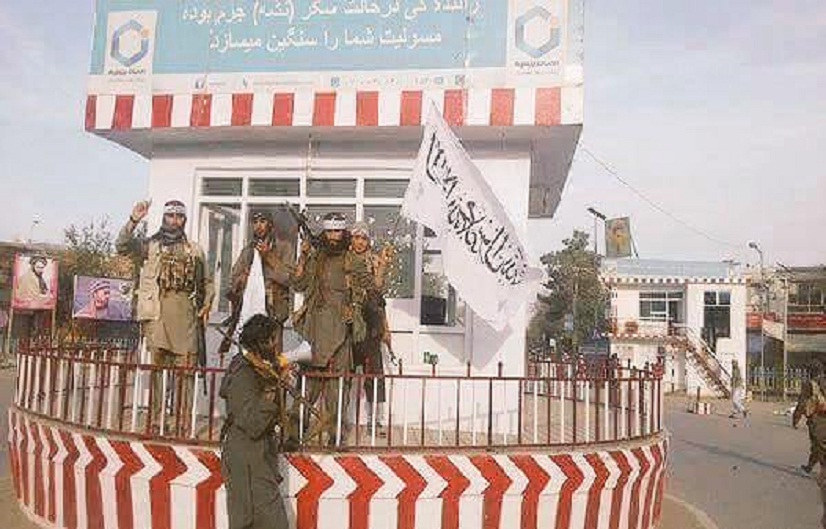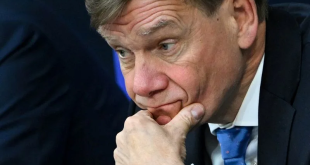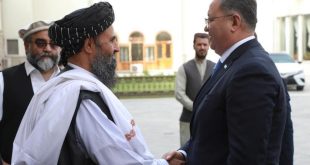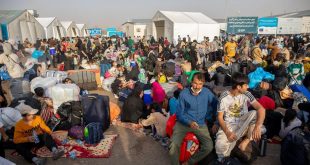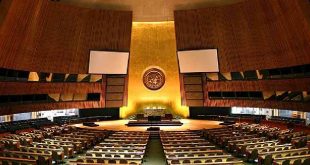Vacant slot of the council’s chief resulted into suspension of funds: Qasimyar
By Mansoor Faizy-KABUL: Donor countries that provided financial assistance to the High Peace Council (HPC) had suspended their funds due to the council’s chief vacant slot, a member of HPC said on Friday.
The spokesperson of the HPC, Mohammad Ismail Qasimyar, told Afghanistan Times that donors have stopped funding the council. “The fund of the HPC has been suspended by the donor countries for the last three months [by the end of their fiscal year]. The donors said that the council yet to appoint a chief and also head of the secretariat,” he said.
“I hope that we can attract their donations again by selecting the chief of the council and head of the secretariat next week,” he added.
He furthered that the United States, Japan, United Kingdom and Germany were the major donors who funded activities of the high peace council. “They pledged to support the peace council financially at the London Conference. The donors have donated 50 million dollars, so far,” he asserted.
In response to a query he told Afghanistan Times that donations of the US and Britain have been suspended.
According to reports the HPC has spent $800 million in a few years with no achievement.
The suspension of donations to the HPC has come at a time when the third round of the Quadrilateral Coordination Group (QCG) meeting between representatives of Afghanistan, Pakistan, United States and China is expected tomorrow (Saturday) in Islamabad, aimed at focusing on how to create a roadmap to resume peace talks with the Taliban. The first round of QCG meeting was held in Islamabad while Kabul hosted the second round.
The suspension in funds by the US and UK is also an indication that these two key players in Afghanistan’s conflict have fixed their eyes on the results of the QCG meeting.
The two countries are waiting for the QCG meetings success, and once the Taliban agreed to hold face-to-face talks with the Afghan government, the US and UK will feel no more necessary to fund the HPC anymore.
Afghans are not satisfied with performance of the HPC as the council failed to convince the Taliban to shun violence and reintegrate into civil society. Moreover, most of the surrendered militants rejoined their old comrade and are fighting against the Afghan security forces.
The High Peace Council was established by ex-President Hamid Karzai based on recommendation of the 2010 advisory National Consultative Peace Jirga, aimed at bringing Taliban to table of talks.
The HPC has come in for some tough criticism in Kunduz, where militants briefly captured the provincial capital last year, said the IWPR Afghanistan in January.
The Council was set up five years ago to handle attempts at reconciliation with the Taliban. Although it has persuaded hundreds of former insurgents to come over to the government’s side, speakers at IWPR debates last month emphasized that there was still a long way to go.
“If the high peace council had been effective in Kunduz, then Kunduz should not have fallen,” the IWPR Afghanistan quoted Abdul Wase Basil, the spokesman for the governor of Kunduz. He added that the funds dedicated to reconciliation efforts would have been better spent on infrastructure projects.
Debate participant Sanaullah Sayedzada asked Basil what the governor was doing to hold the work of the Council in Kunduz to account.
“The provincial departments submit their reports every week to the governor’s office. So if the reports submitted by the high peace council to you over the past five years showed that they were unsuccessful, what actions have you taken as the monitoring entity?” he asked.
Basil said that the provincial governor had consistently criticized the Council’s actions, but said that the management of peace efforts was under the jurisdiction of the central government in Kabul.
“Generally speaking, we have not been satisfied with the performance of this council,” he said.
 Afghanistan Times
Afghanistan Times
